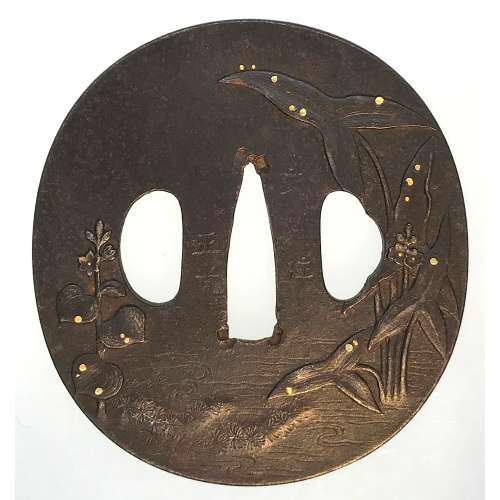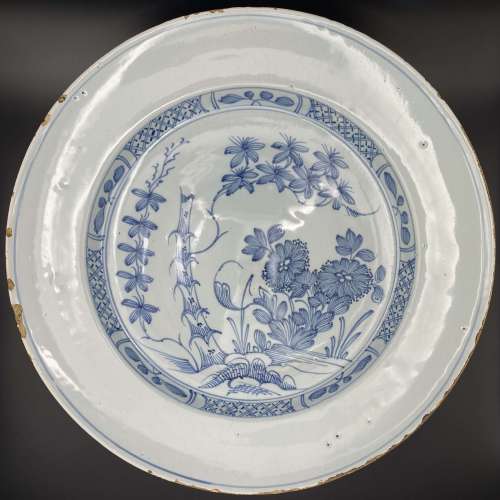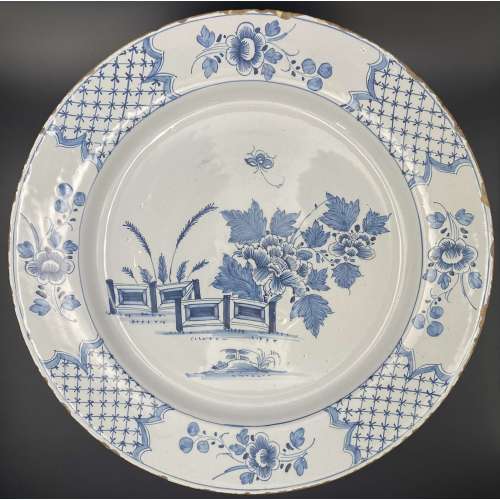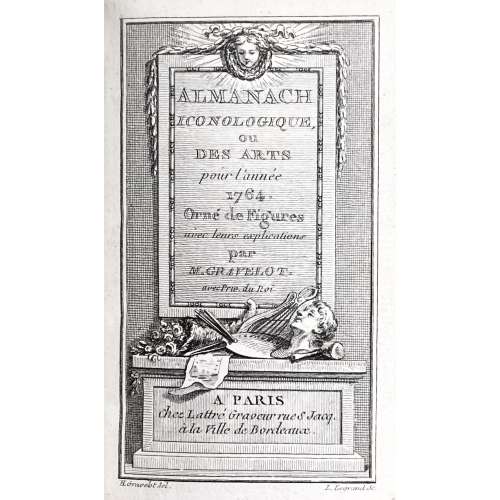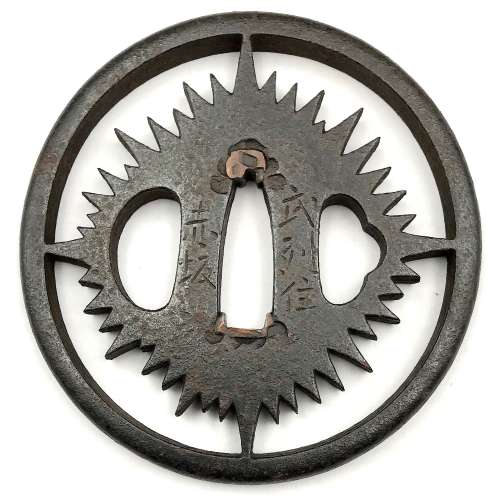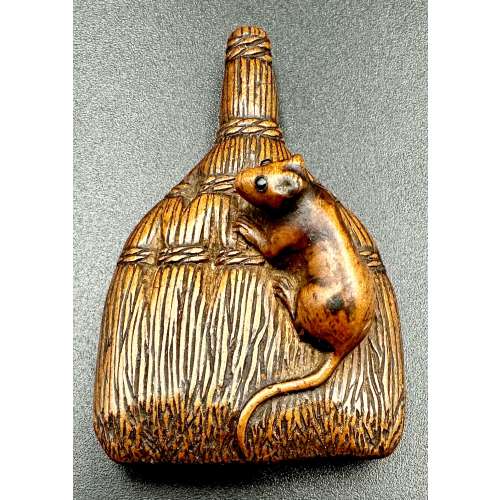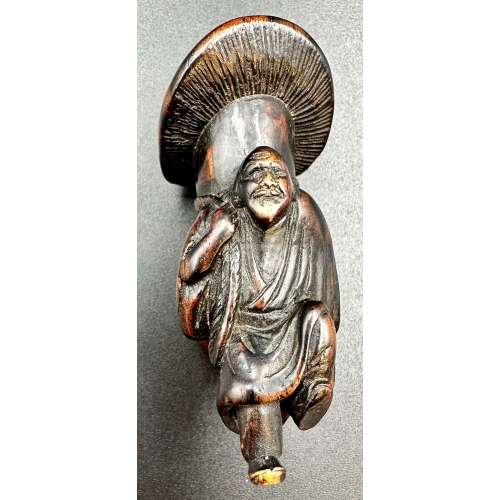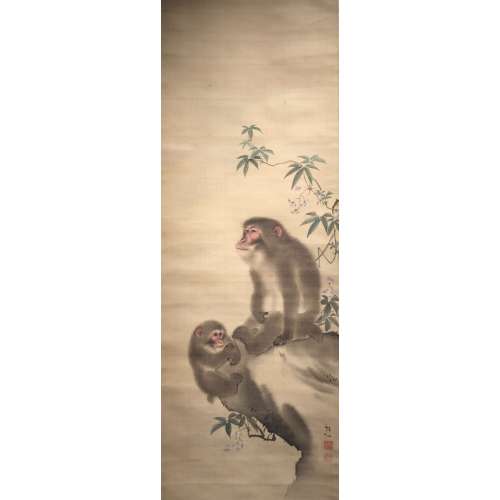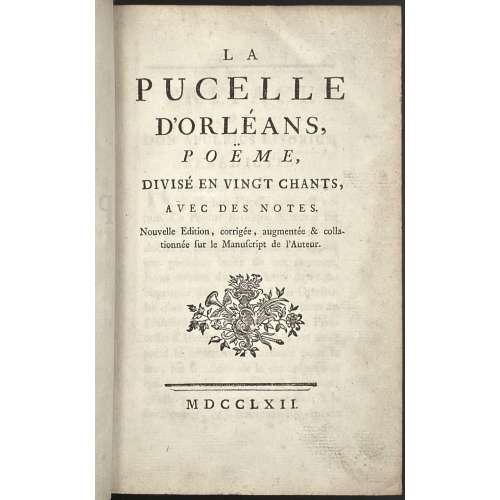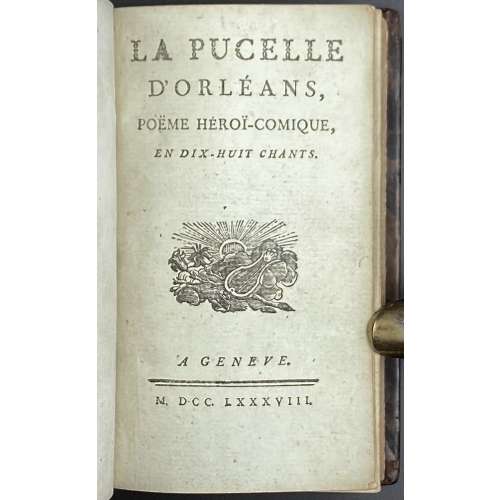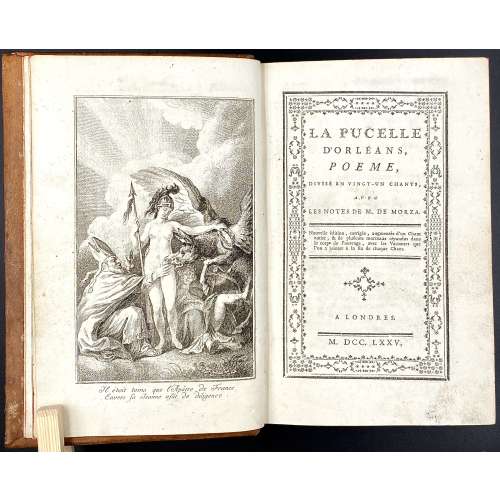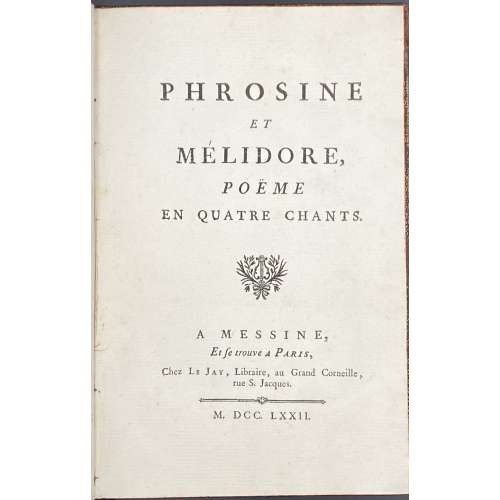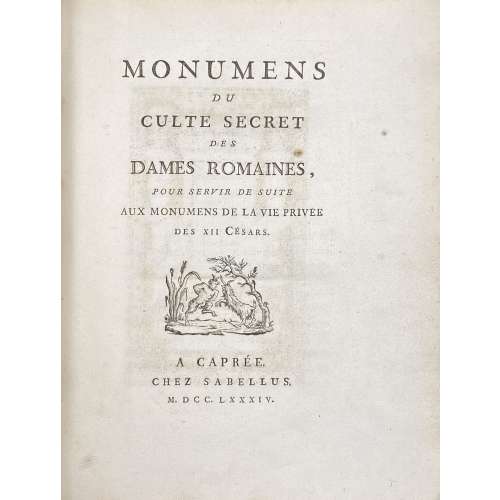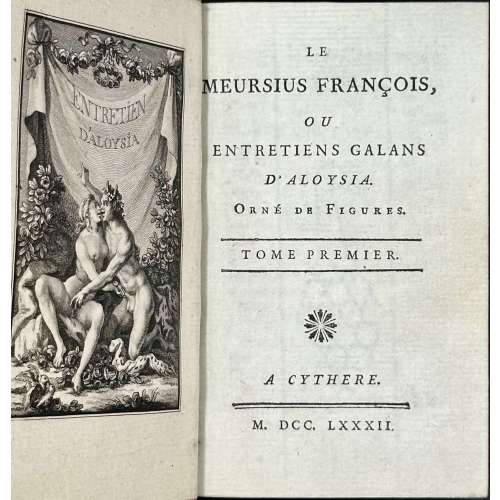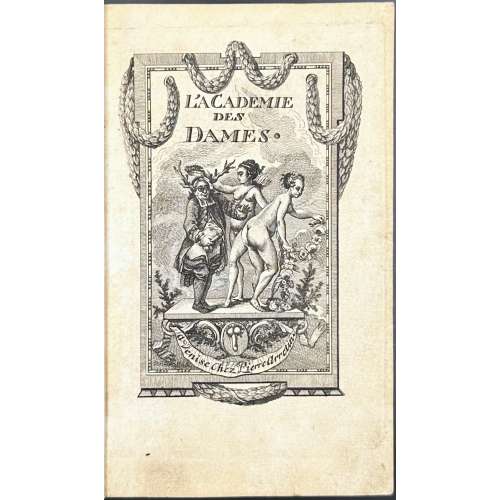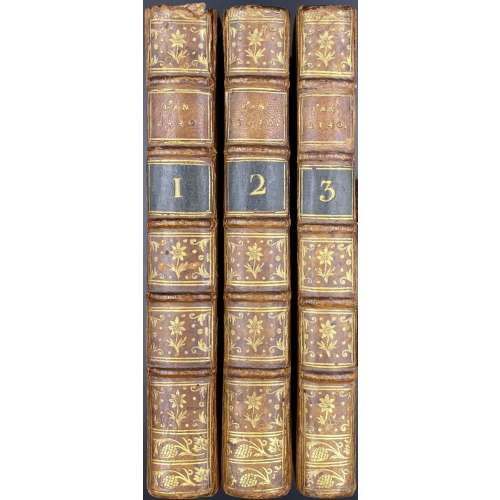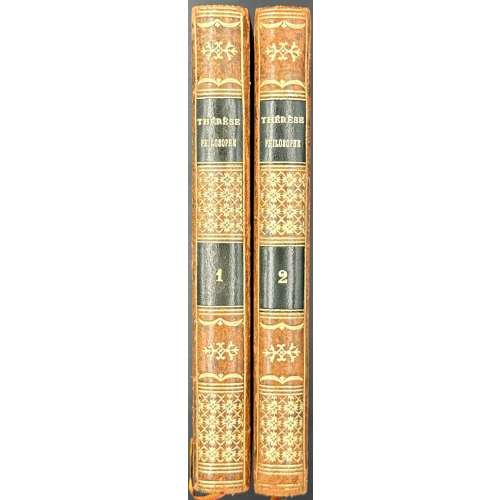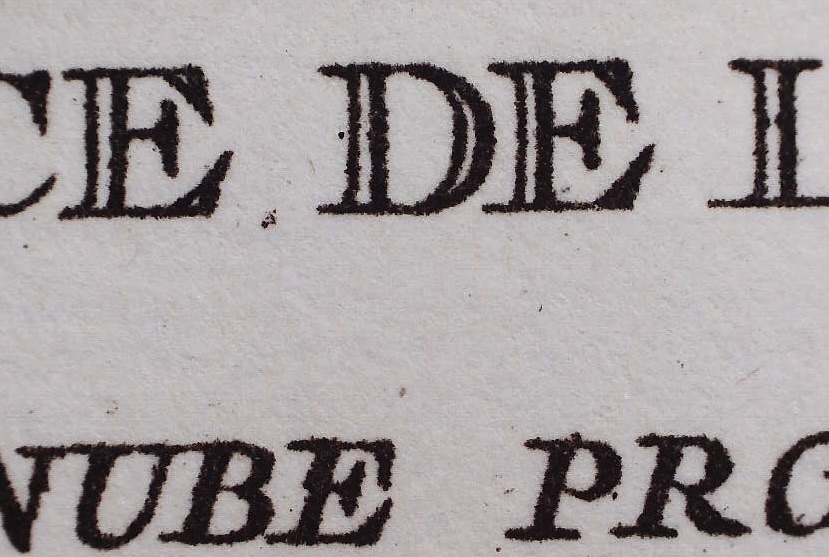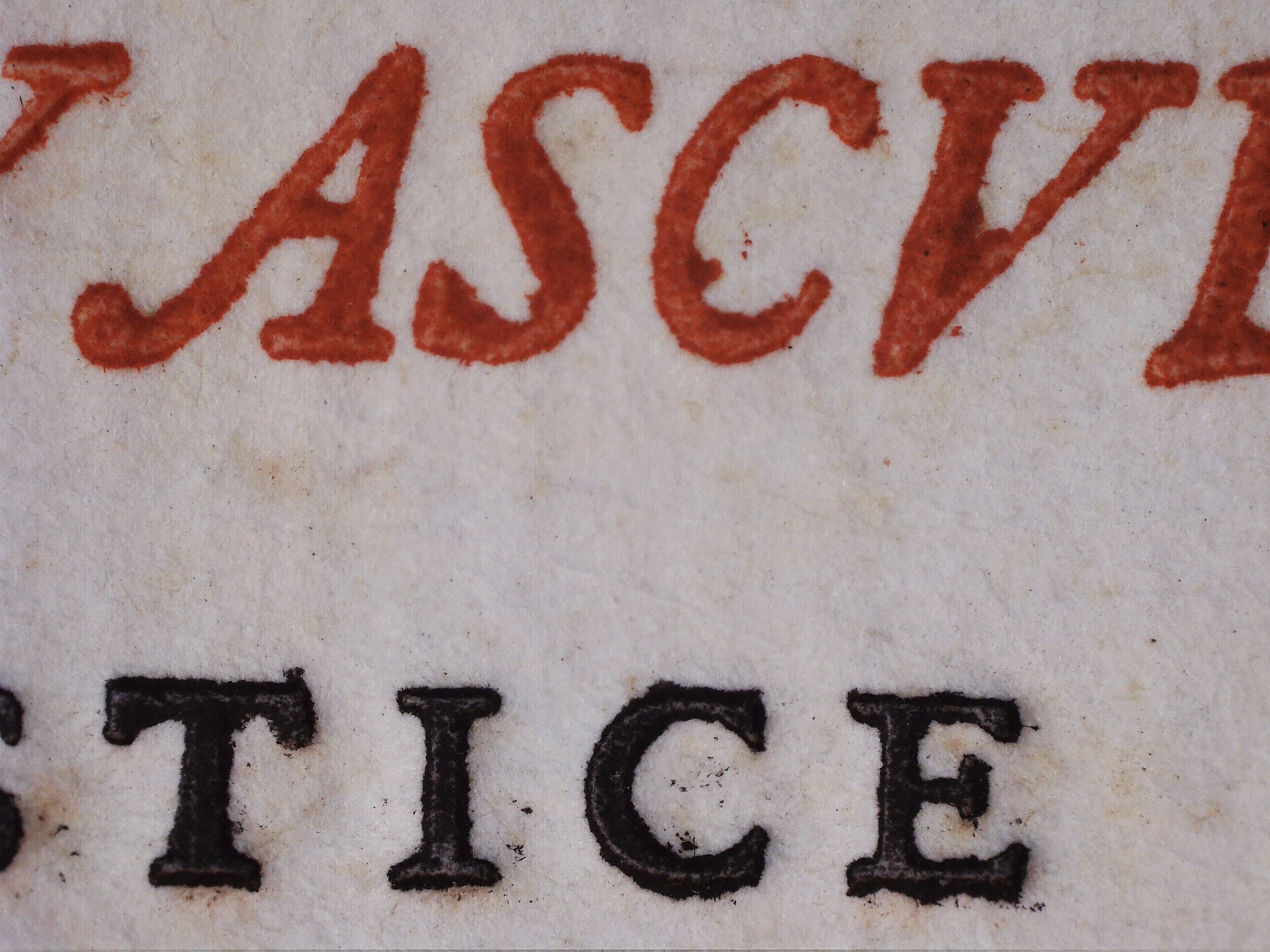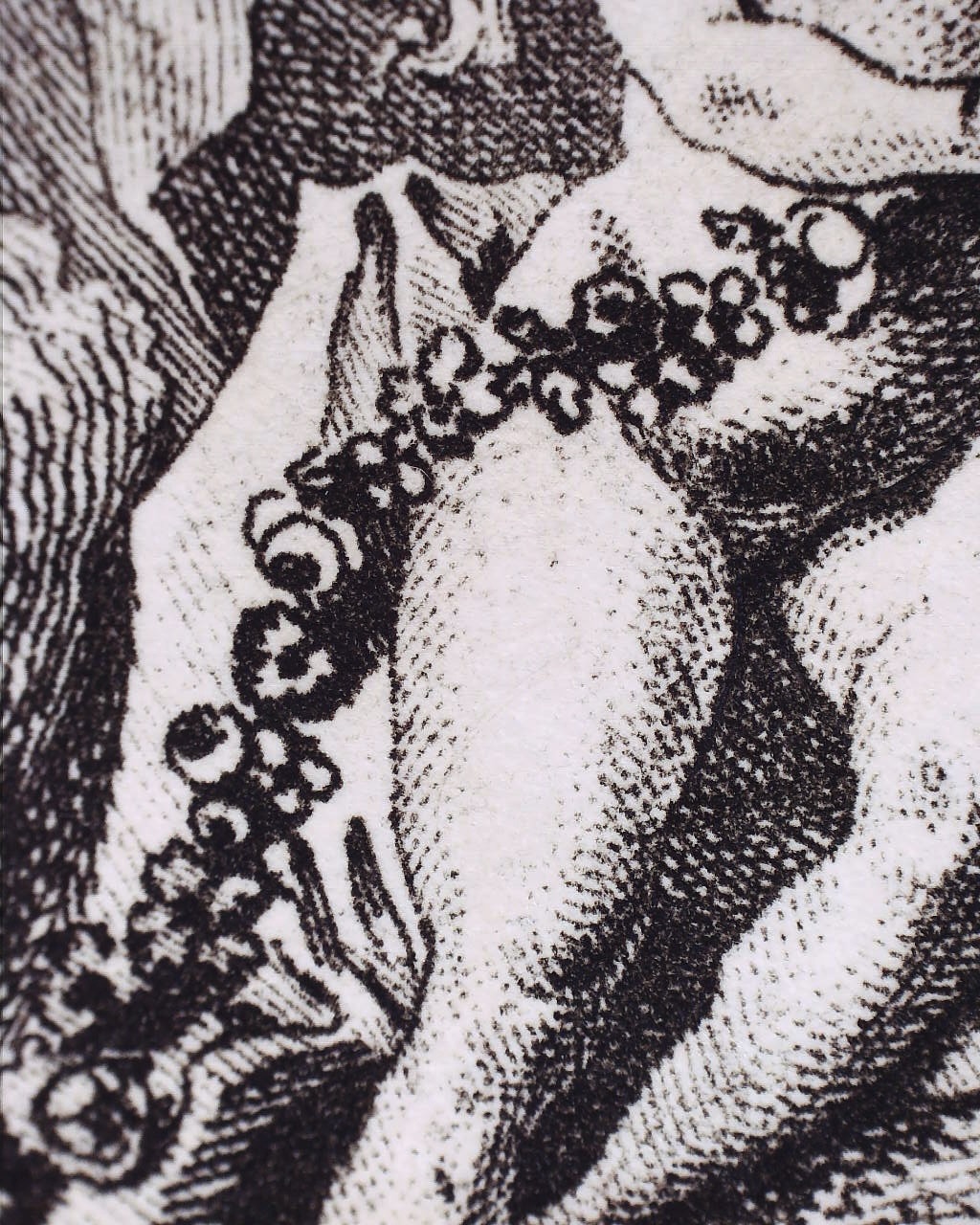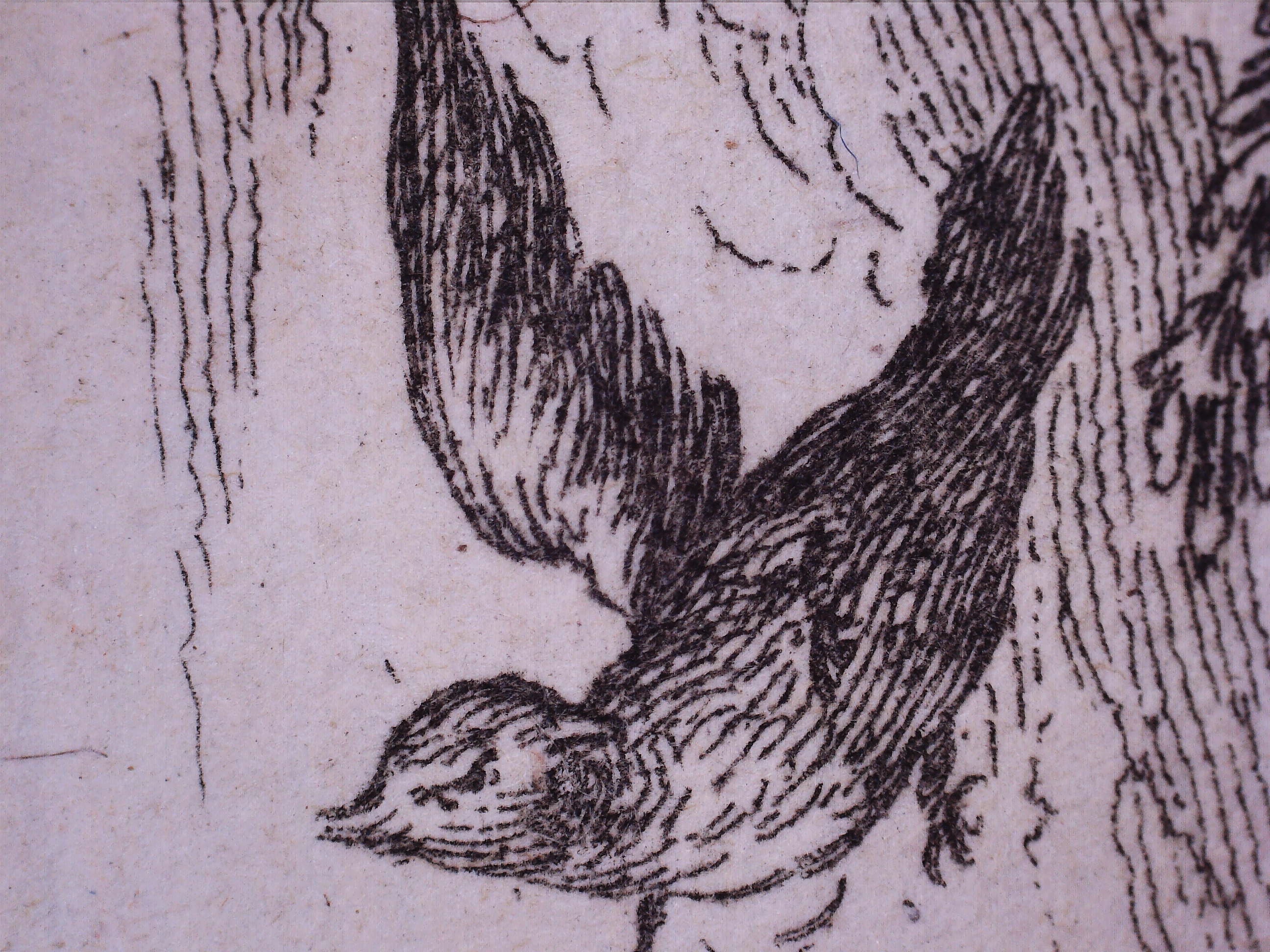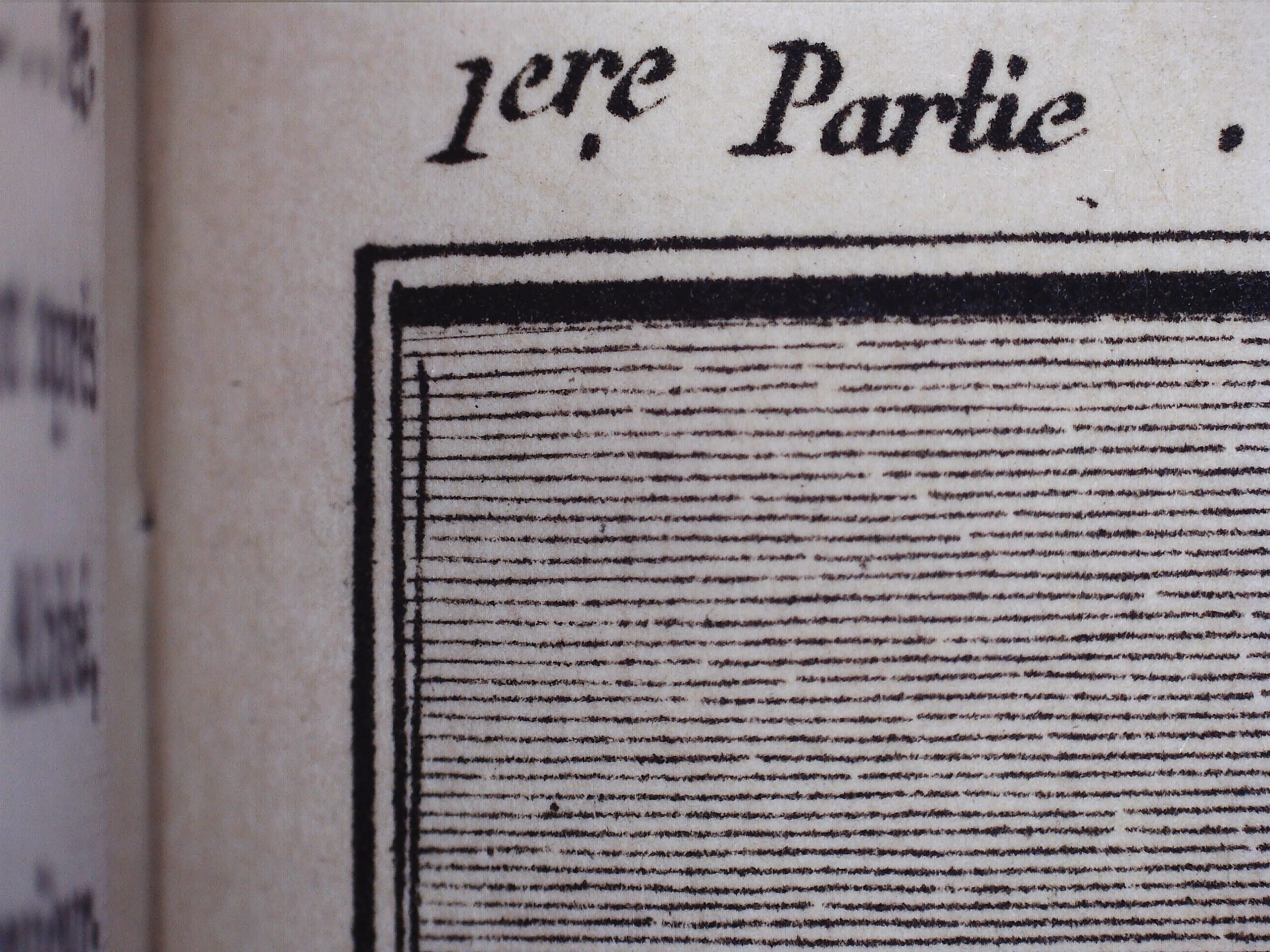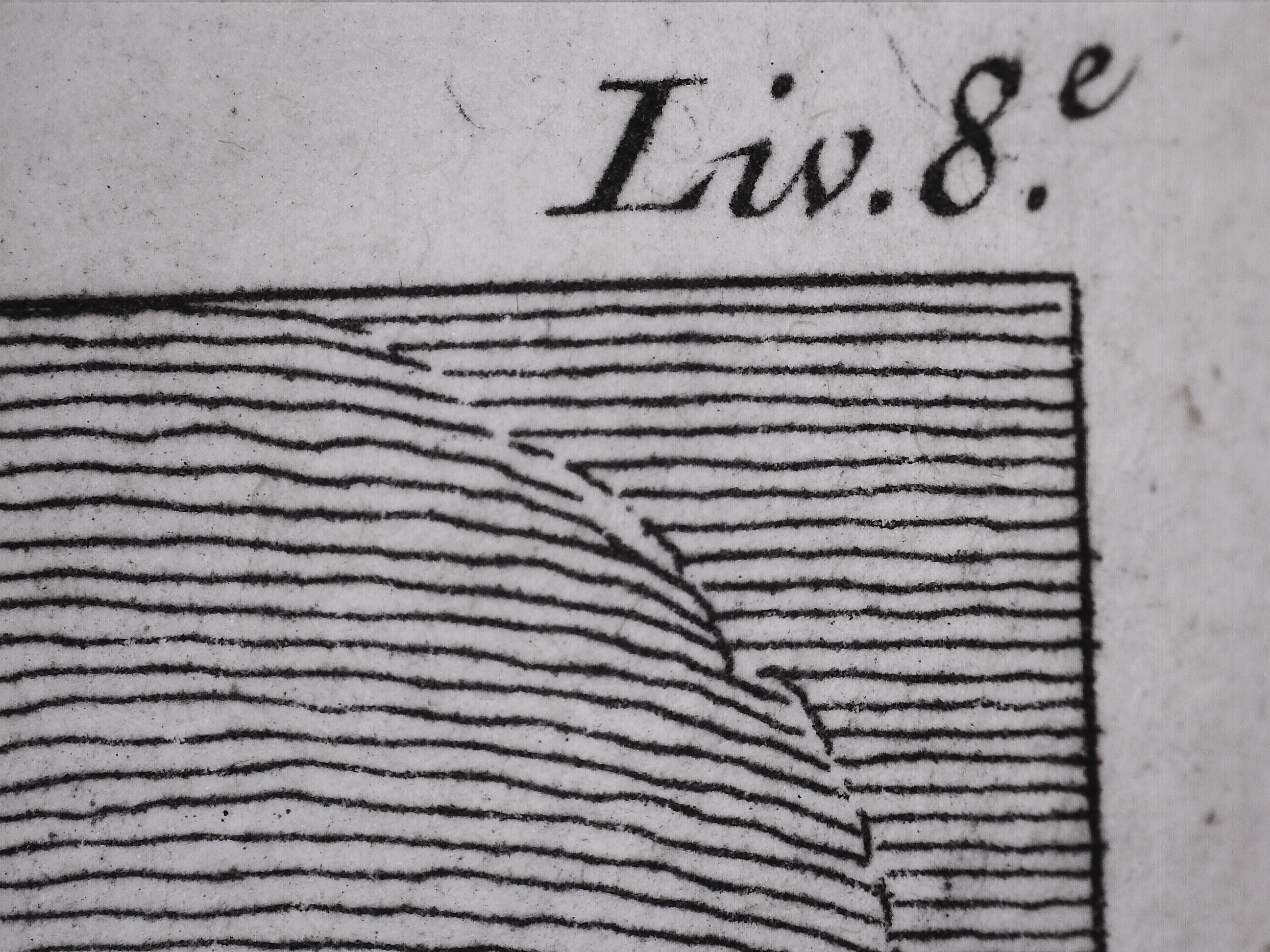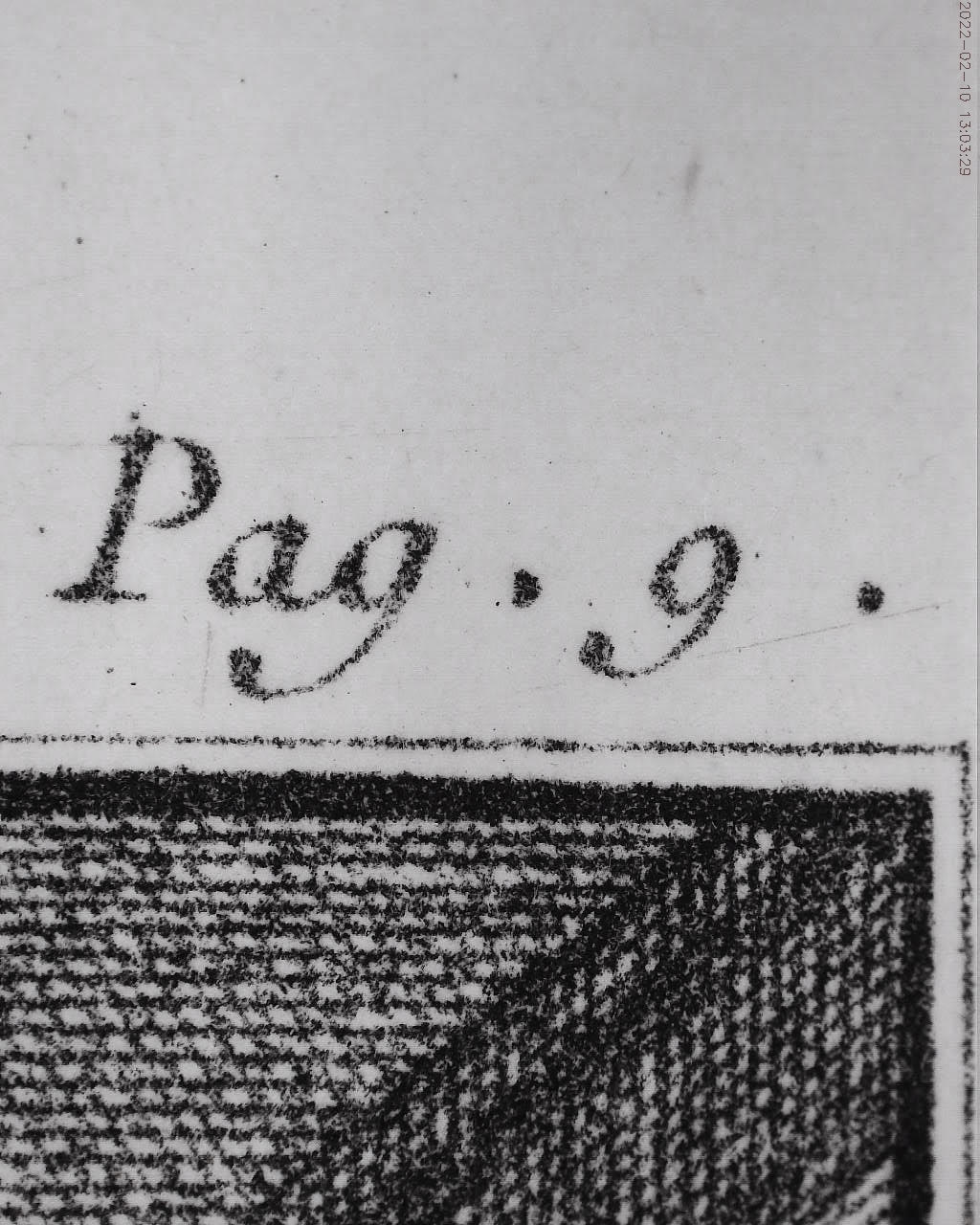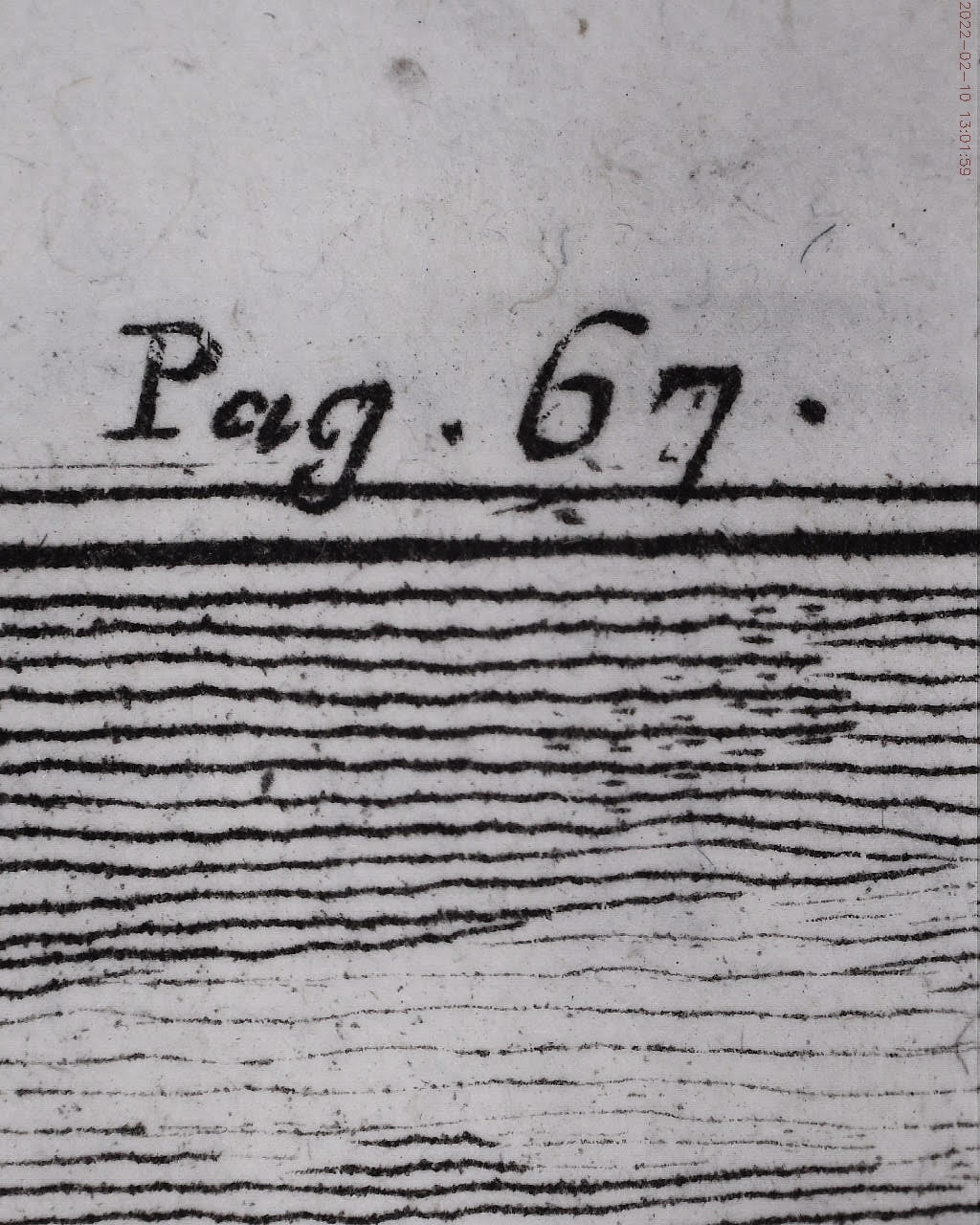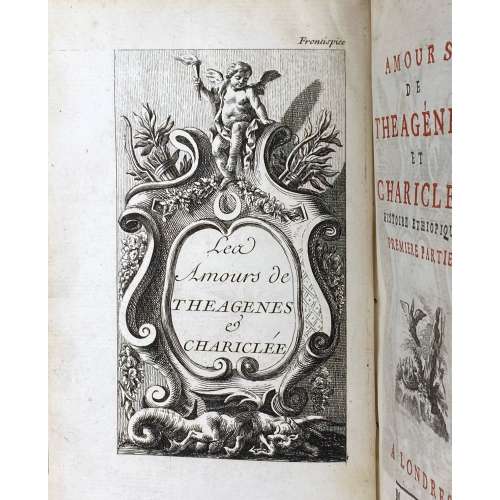A set of two volumes, one with the text (1) and another with the plates (2), cased in a red ‘romantic’ fitting box of red morocco, lavishly tooled in gilt, c. 1840, more recently adapted to house two books of different size.
Vol.1: Hardcover volume, 22.4 x 14 cm, 8vo, bound in half black polished calf (late 19
th century) over marbled boards, spine and corners gilt-tooled, raised bands, gilt lozenges in compartments, gilt-lettered red morocco label; marbled endpapers; Francis M. G. Mauleverer armorial bookplate (motto “Deus Providebit”) to front pastedown. Printed on laid paper, Collation: 1 blank, engraved frontis., engraved t.p., A-Cc
8 Dd
2, 1 blank; pagination:[1] 2-420.
Vol. 2: Hardcover volume, 21 x 14 cm, bound in green straight-grain morocco (early 19
th century), boards with a roll-tooled palmette border, spine decorated in gilt, blue moiré endpapers, yellow feps, additional blank leaves: 2 in the front and 4 in the back, unpaginated; engraved frontis. and t.p. as in vol. 2, plus 35 plates now attributed to Delcroche printed on India paper, pasted on thicker leaves and bound in numerical order, but pl. 34 after pl. 35;
As per
Christie’s “The prints, sometimes attributed to de Hooghe, are actually by Delcroche, who illustrated a number of classics in the 1770s and 1780s, including
Fanny Hill. AE and ABPC record only three copies of this edition at auction, including the Nordmann and Hayoit copies. Apollinaire
Enfer, 277; Dutel A-15;
Eros invaincu 16; Foxon
Libertine Literature, NY: 1965, p.38; Gay-Lemonnyer I, 10; Pia
Enfer, 346.”
Contributors:
Delcroche (Dutch, 17
th century), “artiste hollandaise”, nothing else is known. Dutel and Nordmann attribute the plates to
Romeyn de Hooghe (Dutch, 1645 – 1708).
Nicolas Chorier (French, 1612 – 1692) – author.
Francis M. G. Mauleverer (British, 1918 – 1962) – provenance.
Seller’s description: 2 vols in 8vo (215x125 and 204x117 mm), a complete but composite set, the text volume in late 19
th c. half black morocco, with corners, gilt spine tooled in gold, the plate volume in a nice early 19th-century green morocco binding, the spine gilt-tooled in compartments, the sides with a roll-tooled palmette border, pale blue moiré style endpapers (hinges repaired). Text vol.: engraved frontispiece, engr. title, pp. 420. Plates vol. comprising: the engraved title, frontispiece, and 35 engraved plates, probably by Delcroche. Both volumes cased in a ‘romantic’ fitting box binding, c. 1840, more recently adapted.


